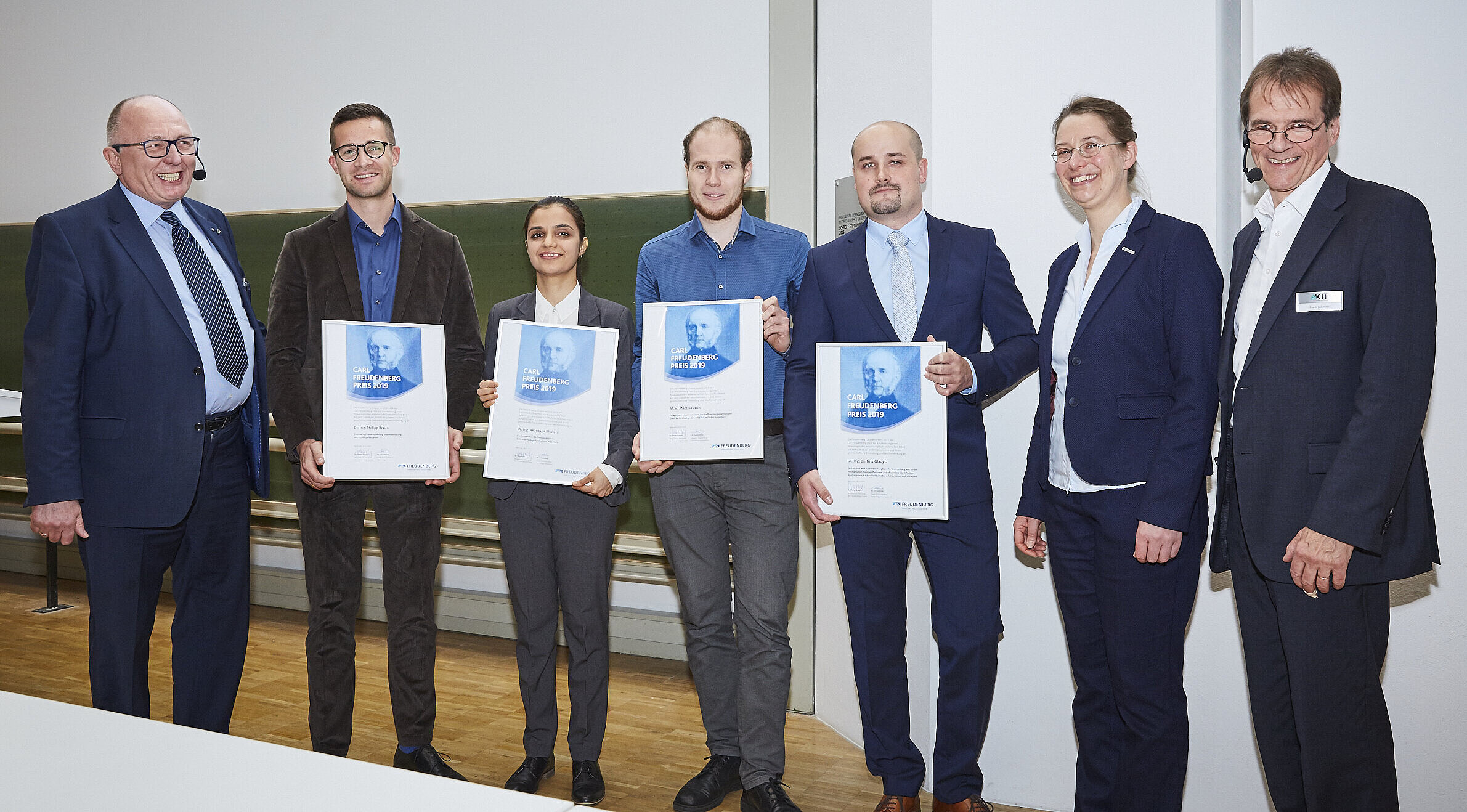Weinheim, Germany, November 29, 2019 How can the capacity of solid-state batteries be physically predicted? How can autonomous driving be made safer by a new frequency range that radar can use to measure distances? How can errors and risks be detected and better understood at an earlier stage when developing mechanical products? How can the electronics of a battery charger be made more efficient and perform better with new types of semi-conductor materials? Dr. Philipp Braun, Dr. Akanksha Bhutani, Dr Bartosz Gladysz and Matthias Luh were awarded the Carl-Freudenberg-Prize for their scientific work that looked at these questions by Professor Albert Albers, Chair of the Institute of Product Engineering at the Karlsruhe Institute of Technology and Dr. Julia Kubasch, Head of Scientific Networks at the Freudenberg Technology Innovation Corporate Function. The jury, under the direction of Professor Albers, honored the work of the four scientists. The prize is awarded every two years.
“I developed a model for lithium-ion solid-state batteries, which can precisely predict their capacity at an early development stage. The model illustrates the advantages of solid-state batteries relative to today’s batteries and accelerates the development process from lab cell to technical system,” says laureate Braun, when discussing his work. He worked on the matter for some four-and-a-half years in various research projects. His scientific dream: “Professionally I want to work many more years in this very dynamic environment and see lithium-ion solid-state batteries used everywhere, just like the current lithium-ion batteries are now used in our smartphones and electric vehicles.”
Innovative radar measurements for vehicles
Bhutani also did nearly five years of research and developed a new radar front-end for the frequency of 122 GHz that uses a technology previously not usable in this frequency range. The new component can easily be installed with other electronic components. It can even measure distances under poor visibility and ambient conditions, meaning it can be used for automotive and various industrial applications. “On a typical working day, we looked at simulations and measurements for the millimeter-wavelength component. I also discussed new solution approaches with colleagues to develop the new concept,” says Bhutani. “I am thrilled to be receiving the Carl-Freudenberg-Prize and proud that the jury honored my years of work. I would like to do more research into the millimeter wavelength range, as this technology has enormous potential to revolutionize people’s everyday lives.”
Fewer product defects thanks to new methods
“My approach helps with the development of mechatronic products,” says Gladysz. “Many product defects stem from the early product development stage and these defects will be more common in times of more complex products. Previous risk assessment methods focused on the analysis of specifications, functions and logical correlations, but neglected the interaction with a product’s design. My newly developed approach uses a model that brings together these various perspectives and allows for improved identification and analysis of Hull-cell panels and their origins.” The scientist’s goal is to have these findings implemented in product development processes. Gladysz has been working on it for two years in industry. “I am very happy about the award and want to thank all those who supported me and made my research possible.”
Climate-friendly electric vehicle charging
Matthias Luh received a special prize for his master’s thesis: “The expansion of renewable energy and the charging of electric vehicles are two challenges driving large areas of research and industry. In my master's thesis I looked at the “Vehicle-to-Grid” concept that offers two solutions through the intelligent connection of electric vehicle batteries to the power grid: The climate-friendly charging of electric vehicles and the interim storage of energy from solar and wind sources.” This is possible thanks to power electronics in battery chargers that have new topologies and use new semiconductor materials to make them more efficient and powerful, while also making them as compact and affordable as current devices. A lot of energy went into the master's thesis and I see the prize both as a sign that it was worth it and that the topic is extremely relevant, and I am looking forward to continuing my research,” says Luh.
Prize winners 2019
• Dr. Philipp Braun: Electrical characterization and modelling of solid state batteries
• Dr. Akanksha Bhutani: Low Temperature Co-fired Ceramic for System-in-Package Applications at 122 GHz
• Dr. Bartosz Gladysz: Design and interdependence-based description of fault mechanisms for a more effective and efficient identification, analysis and traceability of fault sequences and causes
• Special prize for master's thesis: Matthias Luh: Development of a resonant, high efficiency bidirectional Li-Ion battery charger with silicone-carbide semiconductors
